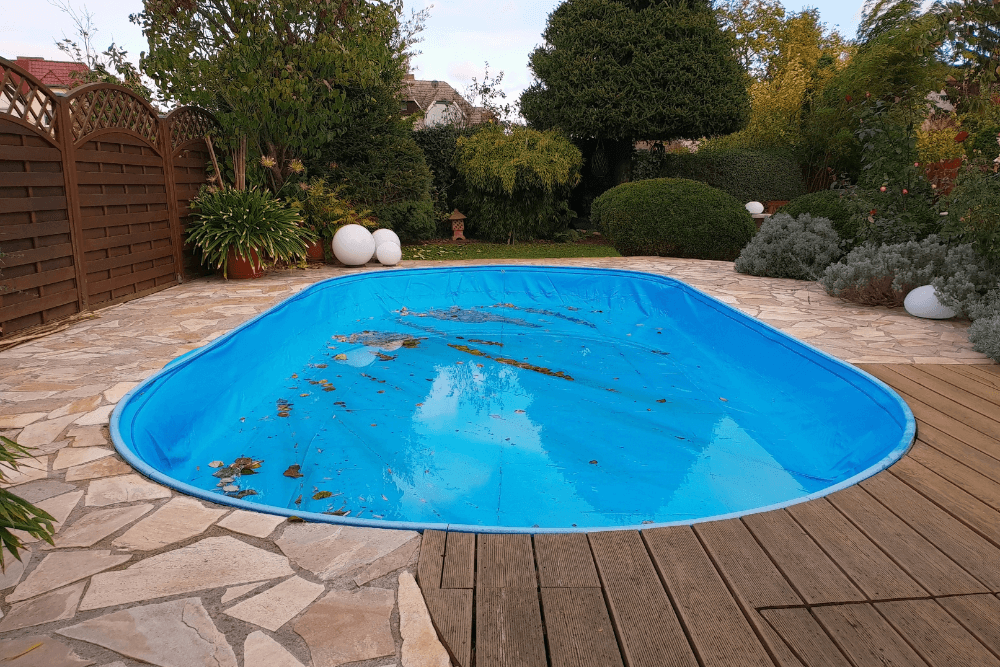Your first thought about the approaching winter season is probably a sense of disappointment, knowing that the swimming season has once again come to an end.
However, dusting your hands off and walking away from your pool equipment as soon as the cold weather sets in is a recipe for disaster. It’s crucial that you winterize your equipment, especially your pool heater, if you want to guarantee a working system when you open things back up in spring.
With that said, flushing the water from your pool heater is essentially the bare minimum, as it often only keeps things “safe enough.” Your pool is full of expensive equipment, so you’ll want to do more to ensure it doesn’t break down.
With that said, below are some steps you can take to properly winterize your pool heater and your entire system as well:
Take Your Time Closing Things Down
Rushing your pool’s closure can cause expensive and frustrating damage. The biggest issues will usually occur if any water is left in the pool heater or pipes, as these can freeze over once it gets cold out, leading to leaks or bursting pipes and ultimately causing a huge mess that no one wants to deal with, especially not in the winter.
Truthfully, there’s not much to ensure your pool heater’s safety, though, as such devices are built to withstand winter weather no matter how cold it gets. Still, draining the heat exchanger is vital, as it ensures that no pool water is left behind. You don’t even have to remove your pool’s heat pump from where it is; it’s advised to leave it alone so you don’t accidentally damage it.
Keep the Proper Flow Rate
Although pool heaters themselves are relatively low-maintenance, the equipment supporting them will need some assistance to keep things operating smoothly come next year.
A good example of such is the pool’s filter: Remember to rinse debris from its cartridge often to maintain a proper flow rate. Failure to do so could make your pool heater less efficient when you’re ready to use it again.
Use an Air Compressor
Another best practice is to use an air compressor to rid the pool heater of any standing water. An air compressor also helps you winterize other parts of your pool, as you can use it to flush water from the strainer, chlorinator, and filter. You’ll still want to triple-check that the air compressor has gotten everything out and then wipe every surface and component dry.
Remember to Rodent-Proof
After winterizing your pool heater, it becomes an ideal place for cold-weather rodents to find shelter. Of course, rodents are never a good sign in your home, and they’re just as obnoxious if they get into your pool system as they can chew through the essential wires that keep your heater working. Bolster your defenses using chicken wire or mesh to prevent rodents from entering.
Don’t Forget About Your Professional Maintenance Services
One way to ensure you’re doing everything by the book is to check with someone who knows it, like the back of their hand. Call for yearly pool heater maintenance before you winterize your system; doing so will help keep it in excellent condition and allow you to spot any problems before the cooler weather arrives.
It may be worth it for some homeowners to have a pool care professional help with their pool heater winterizing. Since some systems are more complex than others, there’s no reason to confuse yourself or damage your unit if you aren’t sure how to proceed; it’s best, in these cases, to call for help and have things done the right way.
Move The Pool Heater Indoors If You’re Worried About Ice
Moving your heater inside is mostly unnecessary and not recommended if you aren’t sure how to do it. Still, doing so will remove a lot of the guesswork from winterizing; you won’t have to worry about much at all if you keep it far from the snow or ice.
If you choose to bring the heater in, you’ll still want to cover it with something breathable to keep moisture from developing inside, as it can cause rust or corrosion and affect the heater’s performance when you reconnect it.
Stay Calm: Winter’s Coming
The winterizing process can feel overwhelming, but it doesn’t have to be stressful. Calm Waters is here to help homeowners like you get their pools situated for the changing seasons. Contact us today to learn more about our services and book your appointment with us.





